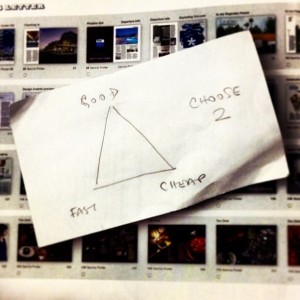My newsfeed erupted in photos capturing one of the most joyous occasions of my family’s shared history. I have to ignore Facebook altogether to avoid crumbling because it’s painful to be reminded over and over how I wasn’t there.
I didn’t smell the dust and beer and sweat of a day’s worth of celebration. I didn’t hear the jokes and laughter anticipating the big race. I didn’t pet Limelight Beach to give him a pep talk or a congratulatory hug. I didn’t see the horse take off out of the gate. I didn’t get a jab in the ribs when he never let up. No one hugged me in celebration and my cheeks didn’t burn from smiling in the hours following the winner’s circle picture.
Pile this atop the growing list of the ways in which I’m limited by my present reality. Living far from family with a gaggle of young children results in multiple occasions of sitting out the opportunities presented.
“It was just a horse race,” we can try to convince ourselves. (Yet all of the harness racing junkies will vomit in their mouth a little when I refer to the Jug as “just a race.”) Sporting event or not, the family experienced together. It will go in the books as something akin to Cruise 2000. My face will be absent in the pictures because I got the van fixed instead. Not by choice, but a result of circumstance.
Which is where it gets tricky. It was our choice, or so I hear, to have all these kids and move away and attempt to do this unassisted by kin. And while we mostly chose the size of our family and the way in which we spend our days, aware our life won’t share all similarities as others, we didn’t get any fine print to examine.
We anticipated having to rethink the way in which we vacation. We knew Christmas would be consistently small. It’s always been clear we would have to make hard decisions in regard to how we spend our time, specifically around extra-cirricular involvement by our kids. It was obvious money would always be in short supply. We weighed those decisions and found them worthy trades of the added personalities to our little homestead.
I love the little buggers, but nothing prepared me for the heartache of missing life’s moments like Thursday because we couldn’t find an all-day sitter. I wouldn’t trade our little big family for anything, but that doesn’t mean I can easily brush aside my frustrations. Joys outweigh hardships, but the challenges can still be heavy.
Similar to how it’s hard to say I’m pregnant, it’s difficult to share my feelings of frustration – I feel I don’t have a right to complain about the circumstances of life which I chose. Any parent is free to express feelings about challenges of kids, but the number of kids you have increases, so does the times you hear “well, you chose that” when you say these things out loud. As a result, I feel I must be silent about what keeps me up at night.
(Except for this blog, where I get to voice what ails me and put words to the feelings I didn’t fully realize until I start typing.)
